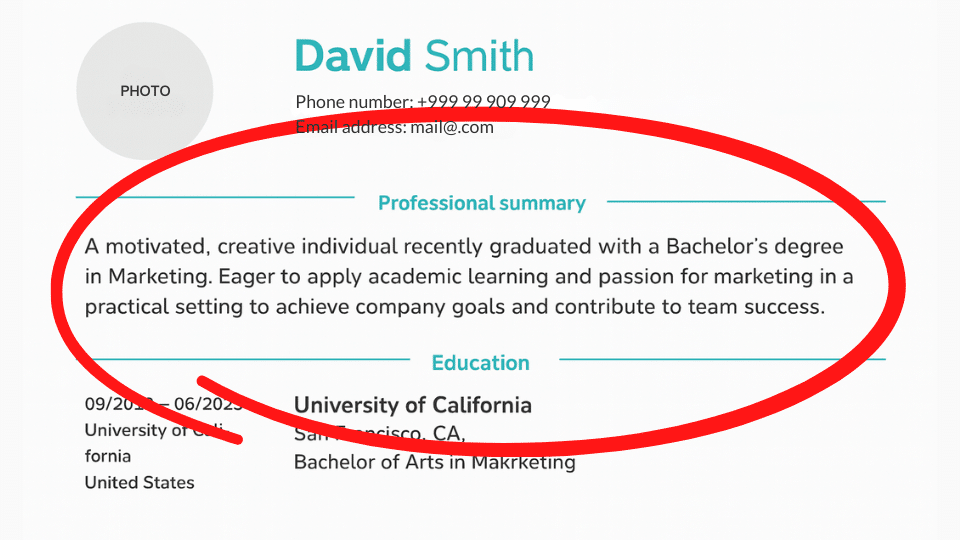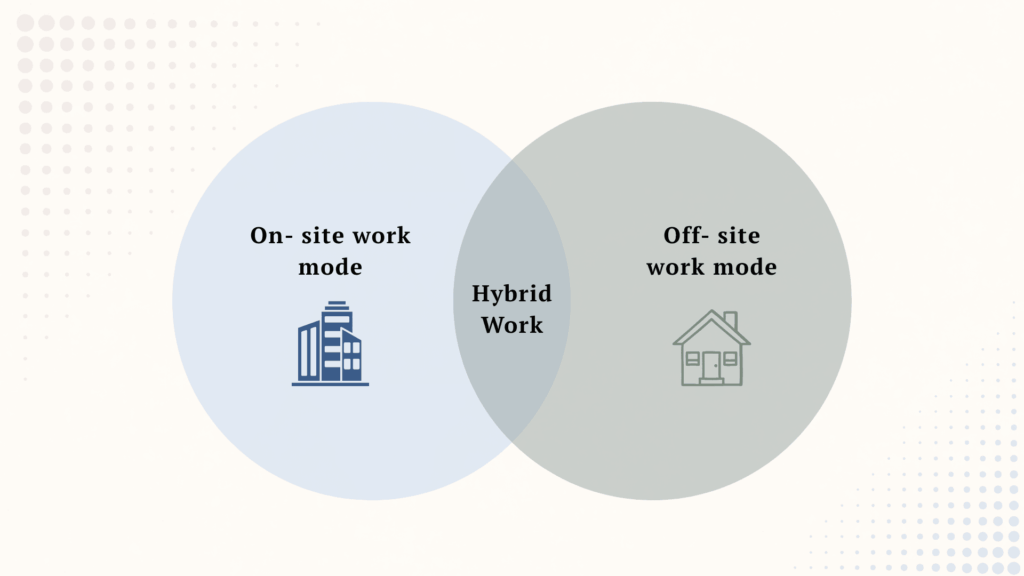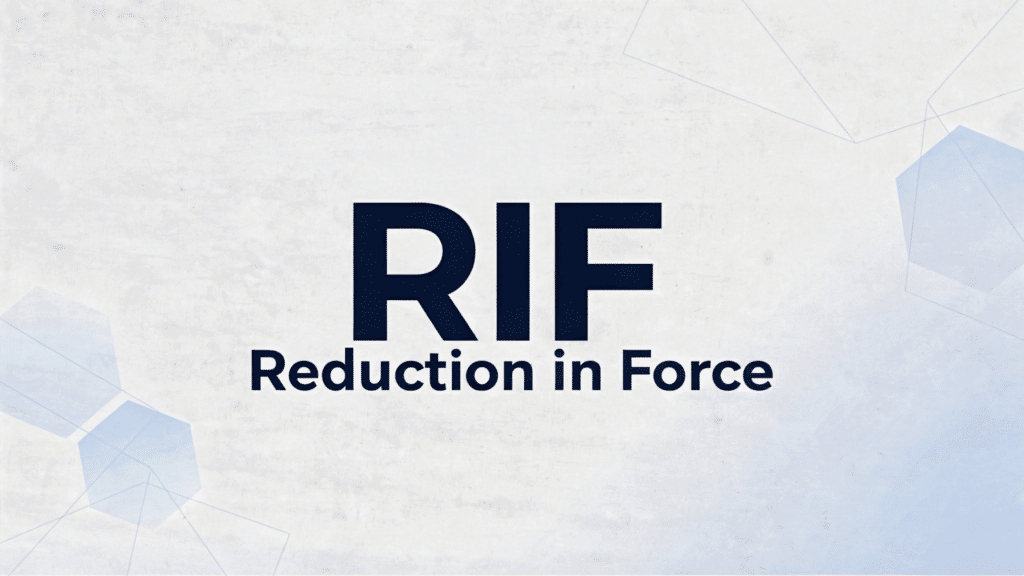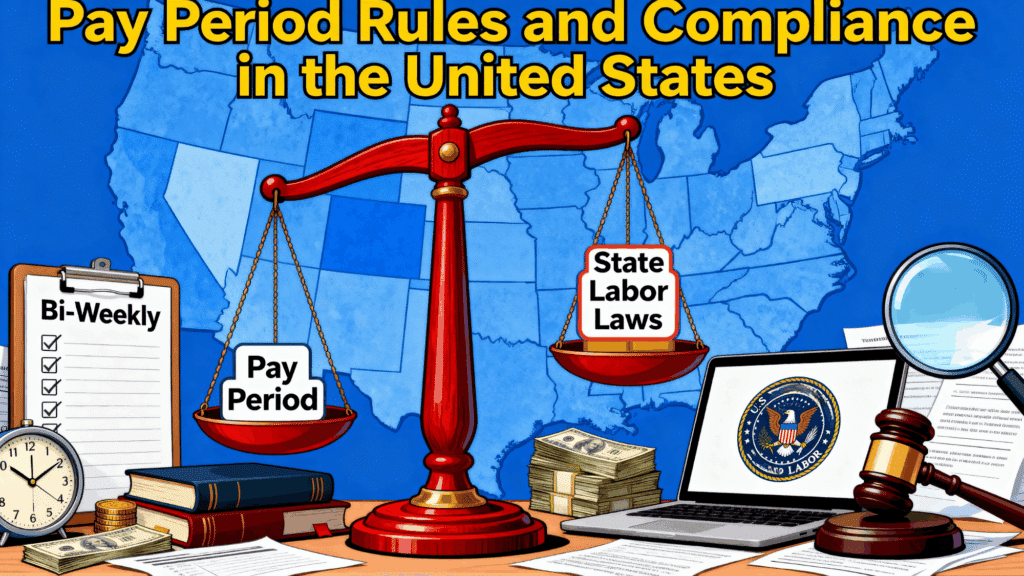In today’s tough job market, your resume has just a few seconds to make a big impact.
A well-written resume summary can be the key to opening doors to your dream job.
But what exactly is a resume summary, and why is it so important?
A resume summary is more than just a few lines at the top of your document.
Think of it like your career’s greatest hits, capturing your best professional skills in a short, exciting way.
For job seekers at every stage, from new graduates to experienced workers, a smart resume summary can help you get more interviews.
It works as a quick introduction that helps employers understand your professional value right away.
What Is a Resume Summary?
A resume summary is a brief statement positioned at the top of your resume that provides an overview of your professional qualifications, key skills, and most significant achievements.
Unlike a resume objective, which focuses on your career goals, a summary emphasizes what you can offer to potential employers.
Key Components of a Resume Summary
- Professional title/ job title
- Years of relevant experience
- Core skills
- Important achievements
- What makes you unique
Where to Place a Resume Summary?
Typically, a resume summary appears immediately after your contact information and before your work experience section.
Purpose of Resume Summary: It is to grab the reader’s attention quickly, highlight your most relevant qualifications, show your fit for the specific role, and effectively pass through Applicant Tracking Systems (ATS).
When to Use a Resume Summary?
A resume summary works best for:
- Professionals with 2+ years of work experience
- Career professionals changing industries
- Individuals with clear, quantifiable achievements
- Those wanting to quickly showcase their professional value
Resume Summary vs. Resume Objective
| RESUME SUMMARY | RESUME OBJECTIVE |
|---|---|
| Focuses on the employer’s needs | Focuses on your career goals |
| Highlights your skills and achievements | Describes what you’re seeking |
| Recommended for most professionals | Best for career changers or entry-level positions |
| Concise and results-oriented | More narrative and aspirational |
Key Features of a Strong Resume Summary
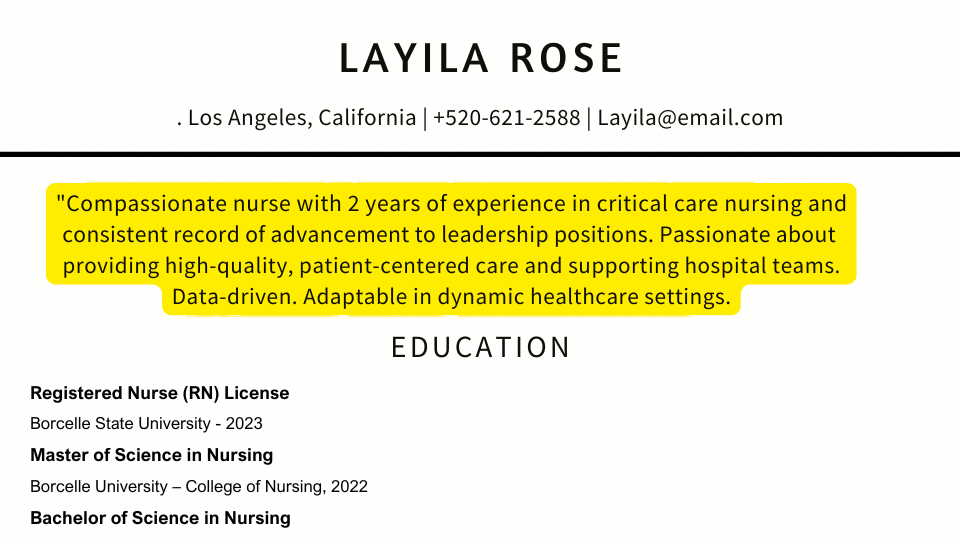
1. Clarity and Concise: Your summary should be clear and easy to understand, focused and precise, free from industry jargon, and readable in 3-4 lines maximum.
2. Relevance to the Job: Use keywords from the job posting to demonstrate that you understand the role’s requirements and have the precise capabilities they seek.
3. Quantifiable Achievements: Numbers speak louder than words. Include specific percentages, monetary values, measurable impact of your work, and concrete results you’ve delivered.
For Example:
Week Summary:“Hardworking professional with good communication skills seeking an opportunity to grow.”
Strong summary: “Marketing Professional with 5+ years of digital marketing experience, increasing client engagement by 45% through targeted social media campaigns and data-driven content strategies.”
How to Write a Powerful Resume Summary Statement?
Follow this proven structure: [Professional Title] + [Years of Experience] + [Core Skills] + [Notable Achievement/Value]
Step 1: Start with Your Job Title
Begin your summary with your professional title.
This helps the employer immediately understand who you are in the workplace. Use the title that best matches the role you are applying for.
Example: Software Engineer, Sales Manager, Graphic Designer
Step 2: Add Your Years of Experience
Include how long you have been working in your field.
Stating your years of experience adds credibility and gives weight to your background.
Example: with 6 years of experience, with over 10 years in healthcare
Step 3: Highlight Your Core Skills
Choose three to four skills that are most relevant to the role.
Focus on abilities that show you can succeed in the position.
This is also where you can use keywords from the job description to make your resume stronger for applicant tracking systems.
Example: skilled in digital marketing, content strategy, and data analysis
Step 4: Show a Key Achievement
Wrap up your summary with a specific achievement that demonstrates your value.
Whenever possible, use numbers or percentages to make your impact clear.
Example: increased website traffic by 120% in one year through targeted campaigns
Step 5: Keep It Short and Focused
Your resume summary should not be longer than three or four sentences.
Avoid repeating details from your work history. Instead, focus on what sets you apart and how you bring value to the role.
Final Example:
“Project Manager with 7 years of experience in IT and business operations. Skilled in Agile methods, cross-team leadership, and workflow improvement. Reduced delivery times by 25% through strategic planning and process changes.”
Pro Tips for Crafting Your Summary
- Use active, strong language
- Avoid cliché phrases
- Update for each job application
- Have a trusted colleague review it
- Proofread carefully
- Tailored Statement According to the Industry
Common Pitfalls to Avoid
1. Being Too Generic: Generic summaries fail to distinguish you from other candidates.
Vague phrases like “hardworking professional” provide zero insight into your unique skills and potential value.
2. Lack of Quantifiable Results: Without specific metrics, your achievements remain abstract.
Employers want concrete proof of your capabilities, percentage improvements, and clear impact demonstrations.
3. Poor Language and Formatting: Weak language choices, using passive language, and inconsistent formatting undermine your professional credibility.
Choose strong action words and maintain a clean, professional presentation.
4. Repeating Resume Content: A summary should offer fresh perspectives, not simply restate your work experience.
Provide strategic insights that complement your professional history.
5. Neglecting ATS Optimization: Modern job applications require digital-friendly formats.
Incorporate relevant keywords and focus on your value proposition to pass automated screening systems.
6. Different industries require different approaches: In tech, emphasize technical skills and project outcomes. In sales, highlight revenue generation and client acquisition.
If you are in the creative field, showcase unique approaches and innovative solutions
Resume Summary Examples
Presenting the perfect resume summary varies across different career stages and industries. Get some examples that show how to effectively present your professional story.
1. Freshers and Young Adults
Example: “Computer Science student with strong programming skills developed through academic projects and an internship at a Tech Startup. Created a mobile application as a final year project, demonstrating problem-solving and technical capabilities. Proficient in Java, Python, and data structures.”
“Business Administration student with leadership experience as President of the Student Finance Club. Assisted in organizing 5+ university events and gained exposure to financial analysis tools. Strong organizational, communication, and teamwork skills.”
For those with limited or no professional experience, in your resume summary, focus on:
- Educational achievements
- Relevant coursework
- Internships
- Volunteer work
- Academic projects
- Transferable skills
Resume Summary for Different Career Levels
2. For Recent Graduates
“Recent Marketing Communications graduate from State University with internship experience at XYZ Marketing. Developed social media campaigns that increased student engagement by 25% during university leadership role. Strong skills in digital marketing, content creation, and data analysis.”
“Psychology graduate with internship experience at ABC Counseling Center. Conducted intake interviews and supported group therapy sessions. Skilled in active listening, research, and data reporting, with a passion for improving mental health access.”
3. Entry-Level Professional
“Entry-level Customer Service Representative with proven communication skills from internship at Tech Innovations. Completed comprehensive customer support training, achieving 95% customer satisfaction rating in mock scenarios. Proficient in CRM software and multichannel communication platforms.”
“Entry-level Sales Associate with experience in retail customer interactions. Trained in POS systems and upselling techniques, achieving a 15% increase in add-on sales during seasonal work. Strong interpersonal and teamwork skills.”
4. Mid-Career Professional
“Senior Project Manager with 8 years of experience in technology sectors. Led 15+ cross-functional teams, consistently delivering projects 20% under budget and 15% ahead of schedule. Expert in Agile methodologies and team optimization strategies.”
“Operations Manager with 6 years of experience optimizing supply chain processes. Reduced inventory costs by 18% and improved delivery efficiency by implementing lean strategies. Skilled in vendor management, logistics, and cross-departmental coordination.”
5. Marketing Professional
“Digital Marketing Specialist with 5 years of experience in content strategy and social media management. Increased client engagement by 45% through data-driven marketing campaigns. Expertise in SEO, Google Analytics, and creative content development.”
“Content Marketing Manager with 7+ years of experience creating multi-channel campaigns for B2B clients. Developed blog and email strategies that generated a 60% increase in qualified leads. Expertise in SEO writing, campaign analytics, and team leadership.”
6. IT Professional
“Software Developer with 4 years of experience in web application development. Specialized in Python and JavaScript, with a track record of improving application performance by 30%. Certified in Agile methodologies and cloud computing technologies.”
“Cybersecurity Analyst with 6 years of experience in threat detection and vulnerability management. Implemented proactive monitoring systems that reduced security breaches by 40%. Skilled in network security, penetration testing, and compliance standards.”
7. Customer Service
“Customer Service Professional with 6 years of experience in high-volume call centers. Consistently maintained a 98% customer satisfaction rating while managing complex client inquiries. Skilled in conflict resolution and multilingual communication.”
“Bilingual Customer Support Specialist with 8 years of experience handling escalations for e-commerce companies. Recognized for resolving 95% of customer issues without further escalation. Skilled in Zendesk, Salesforce, and cross-cultural communication.”
Online Resume Summary Generators & Free Tools
These online tools are designed to help you create a polished, ATS-optimized resume summary with ease, ensuring you stand out to recruiters and hiring managers.
-
Harvard University Career Services
Offers detailed guidance on writing resume summaries tailored to various industries and career stages. -
Stanford University Career Development Center
Provides comprehensive advice for creating personalized resume summaries based on specific job roles and experiences. -
Resume Genius
A popular AI-driven tool that generates tailored resume summaries based on your job title and experience. -
Rezi
Known for its ATS optimization, Rezi creates customized resume summaries designed to pass through applicant tracking systems.
Conclusion
Mastering the art of writing a compelling resume summary can significantly boost your job search success.
It’s your first chance to make a lasting impression on potential employers, highlighting your professional strengths in just a few powerful lines.
Every word counts in this critical career marketing tool.
Invest time in personalizing and customizing your summary for each job application.
Research the role, understand the company’s needs, and align your professional narrative accordingly.
With practice and strategic thinking, you’ll create a summary that stands out in a competitive job market.
What unique approach do you use in your resume summary?
Drop your insights in the comments below!

